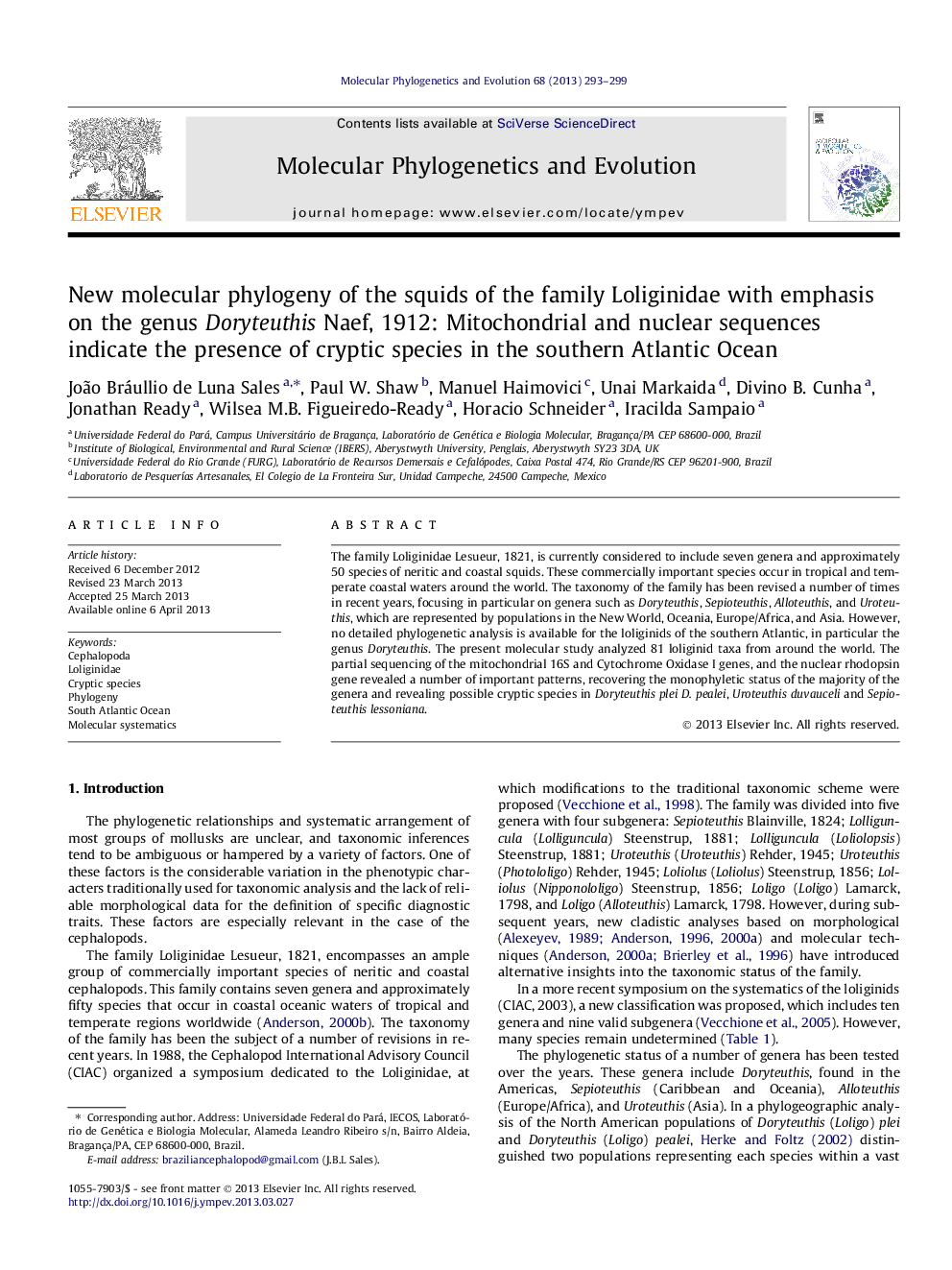| Article ID | Journal | Published Year | Pages | File Type |
|---|---|---|---|---|
| 2833998 | Molecular Phylogenetics and Evolution | 2013 | 7 Pages |
•We analyzed the phylogenetic relationship of the the family Loliginidae utilizing 81 taxa.•The data generated from 16S, COI and Rhodopsin genes reveals new data for the family Loliginidae.•D. plei and D. pealei are genetically distinct between North and South Atlantic Ocean.•Cryptic species are found in U. duvauceli and S. lessoniana in the mitochondrial three.
The family Loliginidae Lesueur, 1821, is currently considered to include seven genera and approximately 50 species of neritic and coastal squids. These commercially important species occur in tropical and temperate coastal waters around the world. The taxonomy of the family has been revised a number of times in recent years, focusing in particular on genera such as Doryteuthis, Sepioteuthis, Alloteuthis, and Uroteuthis, which are represented by populations in the New World, Oceania, Europe/Africa, and Asia. However, no detailed phylogenetic analysis is available for the loliginids of the southern Atlantic, in particular the genus Doryteuthis. The present molecular study analyzed 81 loliginid taxa from around the world. The partial sequencing of the mitochondrial 16S and Cytochrome Oxidase I genes, and the nuclear rhodopsin gene revealed a number of important patterns, recovering the monophyletic status of the majority of the genera and revealing possible cryptic species in Doryteuthis plei D. pealei, Uroteuthis duvauceli and Sepioteuthis lessoniana.
Graphical abstractFigure optionsDownload full-size imageDownload as PowerPoint slide
